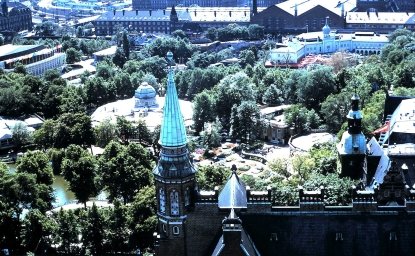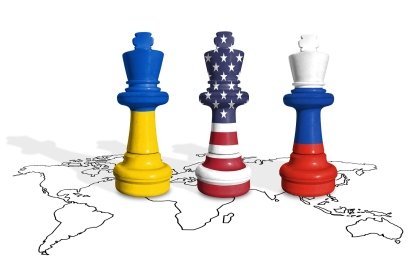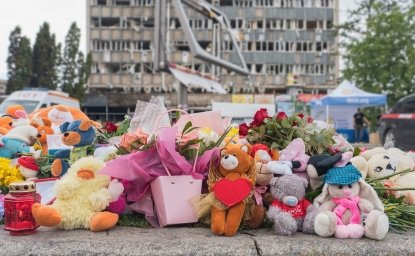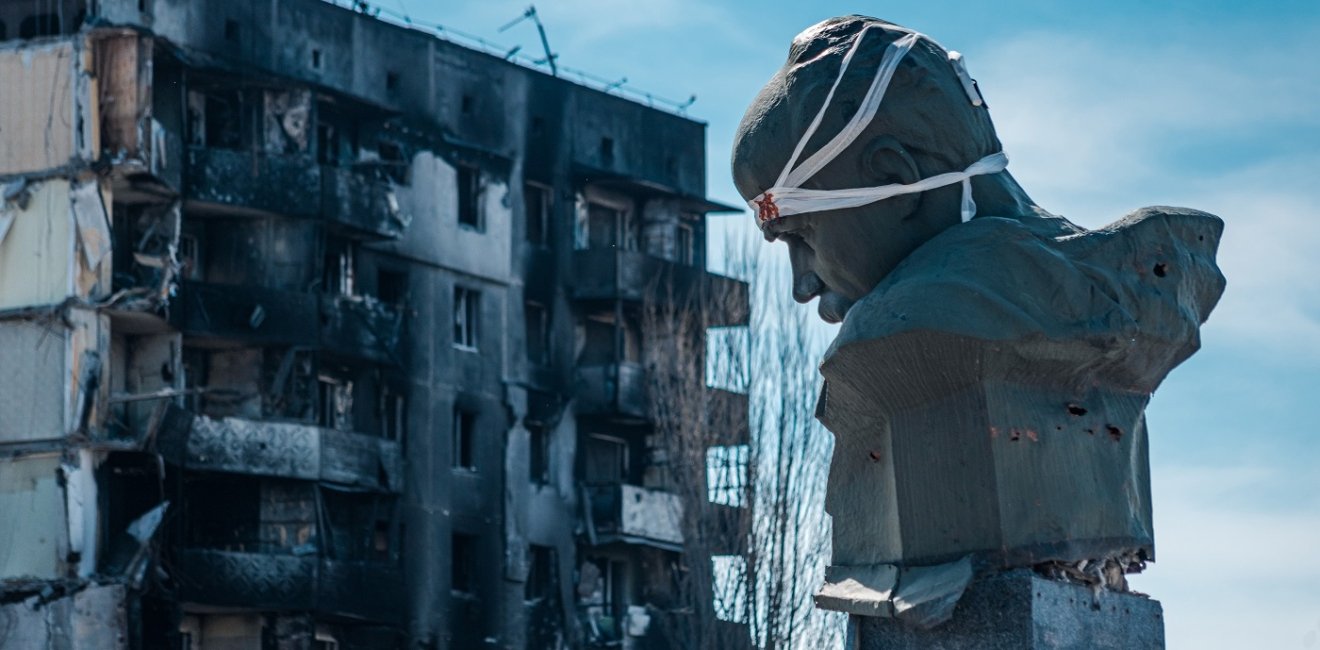
A blog of the Kennan Institute
Ukrainian poet Aleksandr Kabanov, who writes in Russian, is bent on vengeance, poetic vengeance against his father’s homeland, Russia. He writes: “Our air is saturated with lead... / Why is Ukraine at war with some? / That’s father’s homeland / father’s homeland— / came to seize homeland of the son.”
Kabanov was born in Kherson and educated at Kyiv State University (now Taras Shevchenko National University of Kyiv). He is the author of 11 books of poetry. His verse has appeared in major Russian literary journals, and he has won several Russian, Ukrainian, and international prizes. He often has been compared to other Russian poets who spoke out against tyranny, an illustrious lineage which includes Mikhail Lermontov, Marina Tsvetaeva, Osip Mandelshtam, Boris Pasternak, Anna Akhmatova, and Joseph Brodsky.
Ukraine is firmly his home, however, and Kabanov’s steadfast commitment to writing in the Russian language represents an act of rebellion against Russia. He has proclaimed that it has no monopoly on the Russian language: “to give our Ukrainian Russian language to Putin would be the same as giving the German language to Hitler.”
Kabanov turned to his poetry to express his anger towards his father’s homeland beginning with the Russian annexation of Crimea and occupation of Luhansk and Donetsk in 2014. His work appeared with the work of 15 other Ukrainian poets in Words for War: New Poems from Ukraine, a collection against the war published in 2018 in English translation by Academic Studies Press and the Harvard Ukrainian Research Institute. This volume, in the words of reviewer Maria G. Rewakowicz in Slavic Review, “serves as a reminder of what it takes not to lose humanity and dignity in a time of war.”
Kabanov’s most recent book, The Age of Vengeance: Wartime Verses from Kyiv, appeared this summer in English translation. This collection expands on the theme of humanity and dignity during war, including many poems written while hunkered down in Kyiv during Russian bombardment. His spirit of defiance echoes the power of Dmitry Shostakovich’s Symphony No. 7, written and performed in besieged Leningrad during World War II. Several of the works have been included in films, many of which are available on YouTube.
Kabanov has no illusions about the power of art to defeat evil. Rather, he believes that art can help good survive. He writes, “Hunger, death, devastation, fear, the original sin— / there is no axe to hack them, they won’t die, / and only love chomps up slime and filth, sucks it in, / but only love is your smile, only love will win,’ and now, my dear, is the time to cry, to cry.”
The Russian desecration and destruction of his hometown attracts special condemnation. “While I am going home, cursing, when crossing the winter park / thorough fiendish inferno frozen / after the shelling attack. / As if collecting scrap metal /. For my Kherson middle school / on the field of the battle / among the heater bells.”
Putin has claimed many times over that this is a war to protect Ukrainian Russian-speakers like Kabanov. But, as the poet’s verses demonstrate many times over, Ukrainian Russian-speakers needed no protection, beyond being saved from Putin. Kabanov’s poems cry out for retribution against those who claim to speak in their name.
As Kabanov writes near the end of this collection of wartime verses, “Those who go against us must live to regret it, yes. / Does it matter who burns like a cross in the Donetsk steppes / or who’ll next embrace revenge as the holy word? / Father in heaven, give us today our daily sword.”
The opinions expressed in this article are those solely of the author and do not reflect the views of the Kennan Institute.
Author

Former Wilson Center Vice President for Programs (2014-2017); Director of the Comparative Urban Studies Program/Urban Sustainability Laboratory (1992-2017); Director of the Kennan Institute for Advanced Russian Studies (1989-2012) and Director of the Program on Global Sustainability and Resilience (2012-2014)

Kennan Institute
The Kennan Institute is the premier US center for advanced research on Eurasia and the oldest and largest regional program at the Woodrow Wilson International Center for Scholars. The Kennan Institute is committed to improving American understanding of Russia, Ukraine, Central Asia, the South Caucasus, and the surrounding region though research and exchange. Read more

Explore More in Focus Ukraine
Browse Focus Ukraine
Bringing the Sounds of Ukraine to European Audiences

Russia's Gas Transit through Ukraine: End of an Era?

Five Points to Remember Before Dealing with Putin

